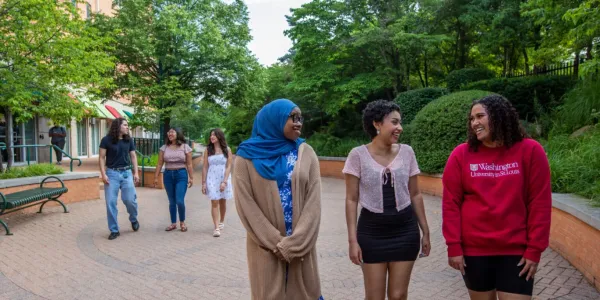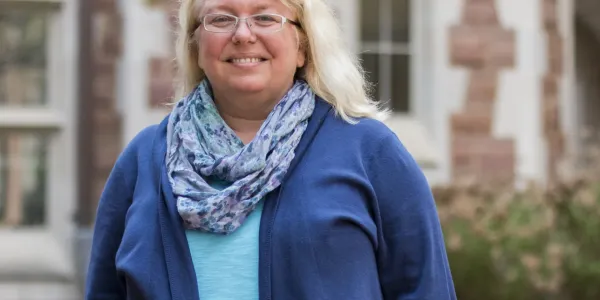Lionel Cuillé is a teaching professor of French in the Department of Romance Languages and Literatures and the director of the French Connexions Cultural Center.

The French Connexions Cultural Center was recognized in 2019 as part of the prestigious network of centers of excellence of the French Embassy in Washington, D.C., hosted by the top 15 research universities in the United States. I created the center with the mission to promote and interpret Francophone culture in all its diversity. Thanks to the partnership established with the cultural services of the French Embassy, the center has hosted renowned writers, as was the case with David Diop, a French-Senegalese writer who received the Prix Goncourt des Lycéens as well as the prestigious International Booker Prize in 2021 for his novel Frères d’âme (At Night All Blood Is Black), which recounts the trauma of a Senegalese rifleman during World War I.
The cultural center’s activities are not limited to the literary field, however. For example, with the financial support of the French Embassy, the center organized an international symposium on the video game industry in Quebec, attended by a wide range of representatives of this dynamic industry, as well as a significant number of students who are majoring in computer science and French. As such, the center intends to demonstrate the added value of French studies for WashU students in science and the social sciences in particular, since a double major in French opens up new professional opportunities and internships in the Francophone world. In collaboration with Career Services, the center organizes professional forums where students can meet alumni who have completed a double major in French and who work in all areas of the industry. Hence the success, for example, of the “French Studies for STEM” event, where WashU medical students were able to share why internships at the Pasteur Hospital in Nice allowed them to internationalize their pre-med studies and increase their chances of getting into medical school.


One of the center’s priorities is to contribute to the new mission of the university as envisioned by Chancellor Martin: “In St. Louis, for St. Louis.” One of the highlights of 2021 was undoubtedly the commemoration of St. Louis native and French legend Josephine Baker on the Washington University campus on the same day she was inducted into the Panthéon in Paris. On this occasion, the center celebrated an icon of song and dance who was also a member of the French Resistance during WWII. To mark the day, the mayor of St. Louis, Tishaura Jones; the Consul General of France, Yannick Tagand; and Chancellor Martin gathered in Graham Chapel to celebrate the city’s icon, and the mayor designated the occasion, November 30, as Josephine Baker Day in St. Louis.
While located in St. Louis, a city founded by the French in 1764, French Connexions is also open to the international scene. Last year the center hosted a live symposium with French professors from Beijing University, who reflected on the growing interest of Chinese students in French language and culture. This spring, the center will host an interdisciplinary, transatlantic symposium on the role of “laïcité” in peaceful coexistence and international law, supported by a grant from the French Embassy.
In the future, French Connexions intends to assert its originality within the network of centers of excellence by promoting French scientific culture. Starting in the fall of 2022, the center will host epidemiologists to compare the management of COVID-19 in various parts of the French-speaking world. It will also launch a lecture series given by physicians and public health experts from the Francophone world, and from West Africa in particular.





